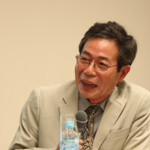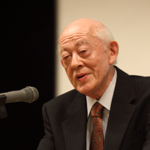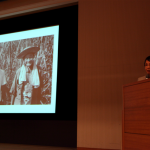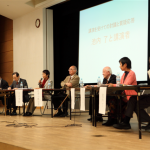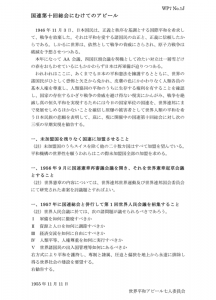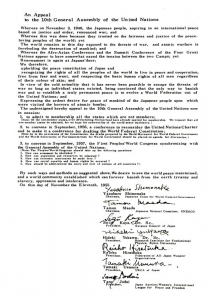The newest Appeal
2023 157E contaminated water should not be released into the ocean(2023.04.06)
April 6, 2023
Committee of Seven to Appeal for World Peace
(founded in 1955)
Yoshino Oishi, Michiji Konuma, Satoru Ikeuchi, Shin’ichiro Ikebe, Kaoru Takamura, Susumu Shimazono, Keiko Sakai
Due to the reactor core collapse accident in 2011 at the Tokyo Electric Power Company, Holdings, Inc. (TEPCO)’s Fukushima Daiichi Nuclear Power Station (from now on referred to as “the nuclear power plant”) the nuclear fuel was melted down. In addition to the cooling water that must be constantly supplied now and for a long time, large amounts of groundwater and rainwater continue to flow into the reactor buildings. As a result, contaminated water containing a tremendous amount of radioactivity generate constantly from the site of the nuclear power plant, and to date, approximately 1.3 million tons of water has been collected in more than 1,000 tanks.
TEPCO complained that the limit would come shortly to how much could be stored on the site, and in response, the Japanese government officially decided on January 13, 2023, that it plans to start releasing it into the ocean 1km offshore through an undersea tunnel in the coming spring or summer. However, in 2015, the government and TEPCO promised in writing that they would not dispose of contaminated water without the understanding of the concerned parties. The government’s decision In the last January is inconsistent with this promise, since the understanding among the fishermen and other concerned parties does not yet reach. Despite such circumstances, the construction of facilities for ocean discharge is currently proceeding at a rapid pace. This plan has various scientific and social problems, and it is feared that it will harm international politics.
From the scientific point of view, 62 types of radioactive substances, such as cesium and strontium, are supposed to be removed until they fall below the regulation value by the Advanced Liquid Processing System (ALPS). This means that some amount of these substances remain in the processed water, and tritium cannot be removed even though it is a radioactive element since tritium and ordinary hydrogen have the same chemical property. Therefore, it says that the water containing tritium is diluted with seawater and dumped into the ocean. It is also noted that tritium releases into the environment during regular operation of nuclear power plants, and the radioactivity (beta rays) emitted from tritium has low energy, so it is safe even if it is released into the environment. Further, a very small amount of tritium is daily produced in the air and it exists in nature. it is said that there is no problem even if you come in contact with it. However, the treated water that touched the exposed nuclear fuel of the accident reactor and the wastewater during regular operation cannot be considered in the same way. And since the beta rays from tritium that enter the body with water have more energy than they can damage DNA, they can cause internal radiation damage. There is also an epidemiological study showing that the incidence of leukemia in children is high in areas near nuclear power plant. In short, there is no scientific consensus on low-dose radiation exposure, not just tritium. This shows the limitations of current science that cannot give a clear answer.
Our course of action in such cases is to base our immediate actions on non-scientific principles of judgment. What we want to advocate here is the “safety first principle (precautionary principle)”. This is the principle that if the danger of a problem that arises cannot deny, the priority is to take safety measures. In light of this principle, it points out that tritium is dangerous, so tritium should not be released into the environment easily.
Furthermore, the release of contaminated water into the ocean is not only likely to have a long-lasting impact on a wide range of fishermen including those in Fukushima Prefecture who have maintained their hopes for full-scale fishing, but it also poses a problem of international trust. Neighboring countries, including South Korea and China, have already expressed their opposition. Pollution of the sea does not stay localized but spreads widely and may adversely affect fishing grounds. Pacific Islanders demand not to release until all stakeholders confirm it is safe.
As mentioned above, the plan to release contaminated water into the ocean, which poses various scientific, social, and international problems, must not be pushed forward. Tritium has a half-life of 12.32 years, so if one continues to store it, the radioactivity of the tank will decrease over time. If necessary, secure more space. In the meantime, it should be considered to reduce the amount of contaminated water generated as much as possible while further strengthening research and development such as solidification. There is no other choice but to avoid haste and take time to deal with radioactivity.
PDF Appeal→![]() 157e.pdf
157e.pdf
<- Appeal list

